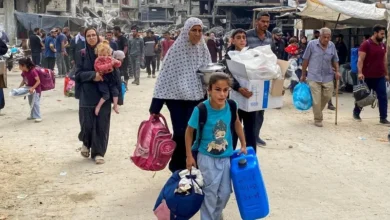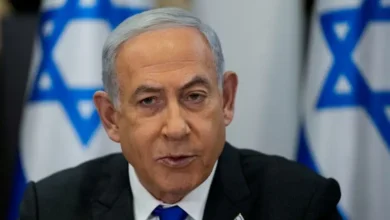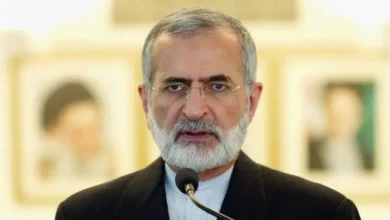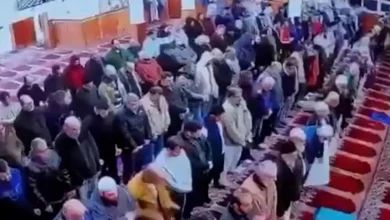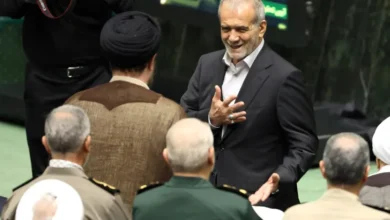Lebanon’s economic crisis endures, as does the EU’s ‘fear’ of refugees
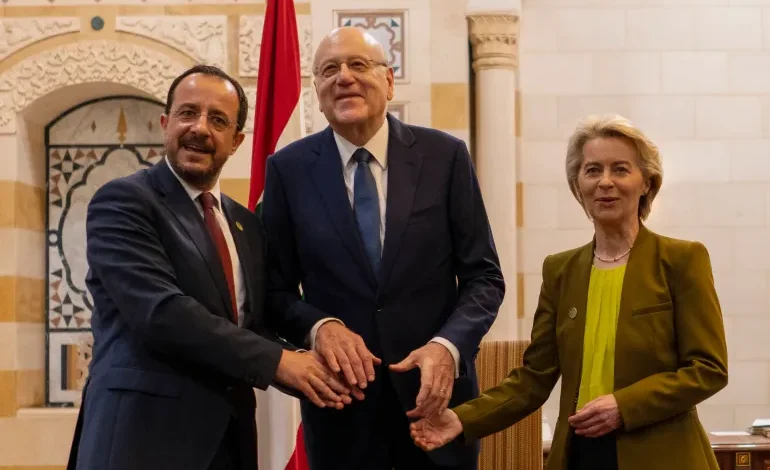
Lebanon and the Lebanese people are still suffering a debilitating economic crisis that has gripped the country since 2019.
The pound has plummeted to less than 10 percent of its value before the crisis, savings have disappeared both in terms of exchange rates and actual deposits as banks announce they have no cash to release, and more and more people worry about simply staying alive.
About 80 percent of the population is below the poverty line and 36 percent is below the “extreme poverty line”, living on less than $2.15 a day.
A recent deal worth 1 billion euros ($1.06bn) with the European Union may have been seen as a godsend in such circumstances, but it has brought to the fore even more problems.
‘Shameful’
EU grants over the past three years are not purely to help Lebanon’s economy.
Rather, they are mostly to “ensure the wellbeing of host communities and Syrian refugees”, as European Commission President Ursula von der Leyen said. Nearly three-quarters of the package is earmarked for that in hopes that refugees will be dissuaded from heading for Europe.
Lebanon has taken in millions of Syrian refugees who have fled their country’s 13-year war.
As more Lebanese people found their lives devastated by the economic crisis, hostility towards refugees has risen, encouraged by a public campaign backed by mainstream Lebanese media and state figures.
The EU package was strongly criticised by human rights workers and analysts, who said the deal rewards the state’s financial mismanagement and mistreatment of the Syrian community.
More than 300 Syrians have returned – or been returned – to their home country in what Lebanese authorities call a “voluntary return” programme.
But rights groups have panned the initiative, which comes off the back of 13,000 forced deportations of Syrians in 2023 alone, violence towards refugees in Lebanon and ongoing conflict in Syria itself.
“Human Rights Watch has documented the summary deportation of thousands of Syrians in 2023 and [the] deportation of opposition activists and army defectors this year,” Ramzi Kaiss, a researcher in the Middle East and North Africa Division at the right group, told Al Jazeera.
“Among those documented deportations were Syrians who were attempting to flee Lebanon by sea and returned to Lebanon by the Lebanese armed forces and subsequently deported.
“The fact that the EU would provide funds to encourage that behaviour is shameful.”
‘Asking people to starve’
Another enduring issue in Lebanon renders the assistance less than helpful.
“The biggest problem is the total absence of accountability,” Karim Emile Bitar, professor of international relations at Saint Joseph’s University in Beirut, told Al Jazeera. “Even the Lebanese minister of finance acknowledged that local corruption could be a major [issue].”
The country’s poor do not benefit from money coming into the country, left to fend for themselves.
“In this country, we live by the blessing of God Almighty, … and people help each other,” Abu Omar, the owner of a clothing shop in Tripoli, Lebanon’s second largest and poorest city, told Al Jazeera.
“Everything is very expensive, and the economic situation is very bad. There’s no money and very little work and lots of taxes.”
Lebanon’s Parliament passed a new budget in January aimed at cutting its significant deficit, which the World Bank says is 12.8 percent of its gross domestic product.
The new budget increased the value-added tax and decreased progressive taxes on things like capital gains, real estate and investments – hitting the poorest and most vulnerable the hardest, according to economists.
“With this kind of strategy to curb the deficit, people can’t meet basic needs of health, food, shelter and education,” Farah Al Shami, the social protection programme leader at the Arab Reform Initiative, told Al Jazeera.
‘Nothing new under the sun’
International financial institutions like the World Bank have been pushing Lebanon’s leaders to introduce reforms to increase “transparency, inclusion and accountability” as a condition for releasing aid packages.
The International Monetary Fund has been sitting on a badly needed $3bn package that would, in theory, help the state’s many near-bankrupt, paralysed institutions get up and running again.
Lebanon’s political elite has avoided implementing reforms, worried that transparency may reveal corruption among a leaders focused on protecting their business monopolies, according to Leila Dagher and Sumru Altug, writing for the Georgetown Journal of International Affairs.
The alternative, according to some observers, has been to wait and hope that the international community will eventually feel that it is to its benefit to prop up even a failing governing structure as long as it helps hold back some refugees.
The EU has given Lebanon more than 3 billion euros ($3.3bn) since 2011, half of which was to help with the fallout from the war in Syria – money that was supposed to help refugees become self-sufficient and help the Lebanese host community.

